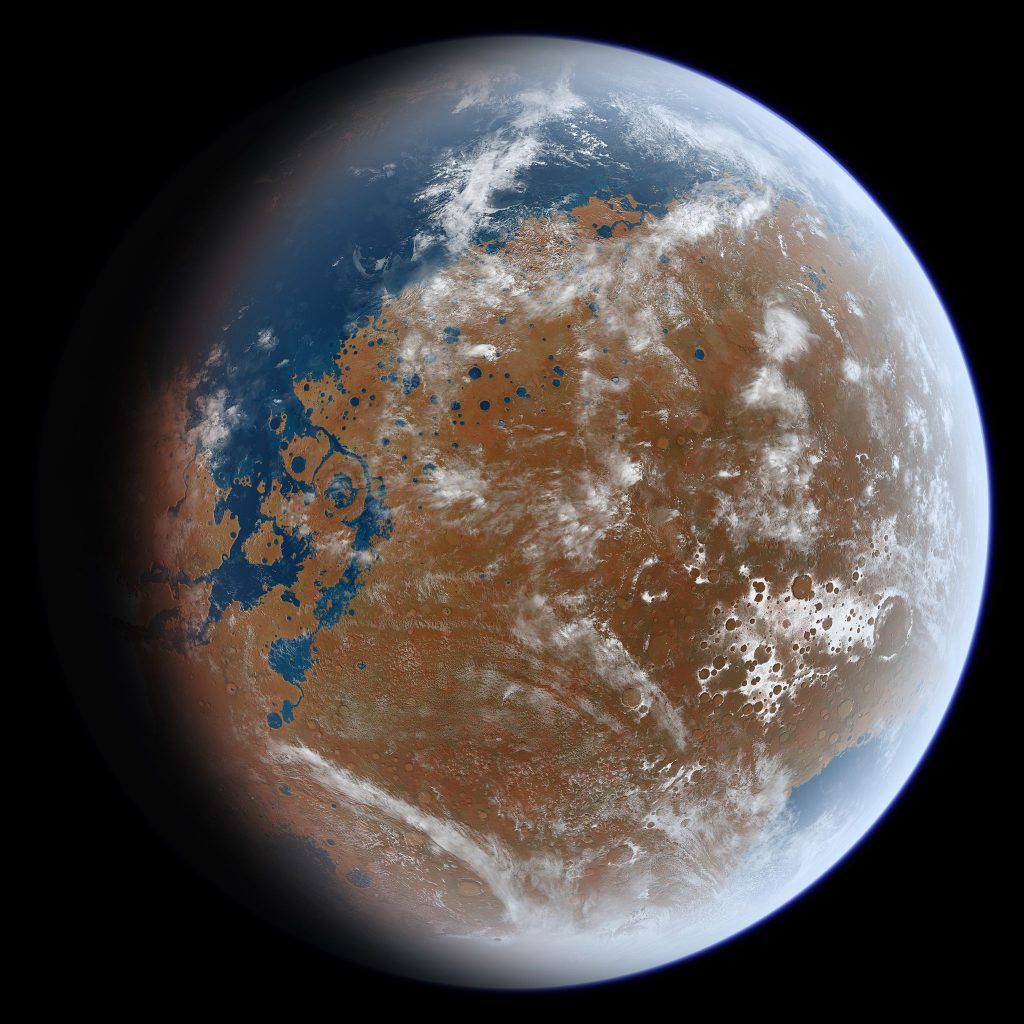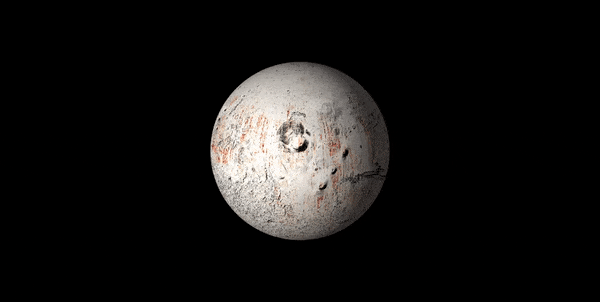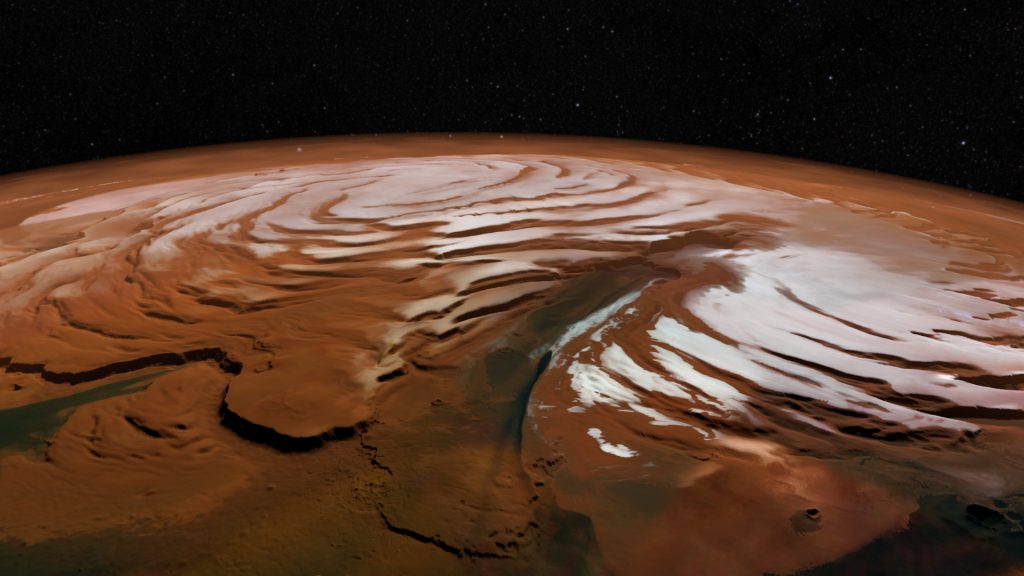Billions of years ago, water flowed on the surface of Mars. But scientists have an incomplete picture of how the Red Planet’s water cycle worked. That could soon change after two graduate students at The University of Texas at Austin filled a large gap in knowledge about Mars’ water cycle — specifically, the part between… Continue Reading UT Austin Grad Students Find Missing Link in Early Martian Water Cycle
Molten Martian Core Could Explain Red Planet’s Magnetic Quirks
Like Earth, Mars once had a strong magnetic field that shielded its thick atmosphere from the solar wind. But now only the magnetic imprint remains. What’s long baffled scientists, though, is why this imprint appears most strongly in the southern half of the Red Planet. A new study from the University of Texas Institute for… Continue Reading Molten Martian Core Could Explain Red Planet’s Magnetic Quirks
Meet the Mars Student Researcher Who Wants to Rewrite Fluid Dynamics
Mars was once a wet world, like Earth, but did water hang around long enough on its surface to sustain life? That’s the question on the mind of Eric Hiatt, a graduate student at UT Austin’s Jackson School of Geosciences, who’s supported by UT’s Center for Planetary Systems Habitability to study the history of water… Continue Reading Meet the Mars Student Researcher Who Wants to Rewrite Fluid Dynamics
Hope for Present-Day Martian Groundwater Dries Up
Liquid water previously detected under Mars’ ice-covered south pole is probably just a dusty mirage, according to a new study of the red planet led by researchers at The University of Texas at Austin. Scientists in 2018 had thought they were looking at liquid water when they saw bright radar reflections under the polar cap.… Continue Reading Hope for Present-Day Martian Groundwater Dries Up
Massive Martian Ice Discovery Opens a Window into Red Planet’s History
Newly discovered layers of ice buried a mile beneath Mars’ north pole are the remnants of ancient polar ice sheets and could be one of the largest water reservoirs on the planet, according to scientists at The University of Texas at Austin and the University of Arizona. The team made the discovery using measurements gathered… Continue Reading Massive Martian Ice Discovery Opens a Window into Red Planet’s History





